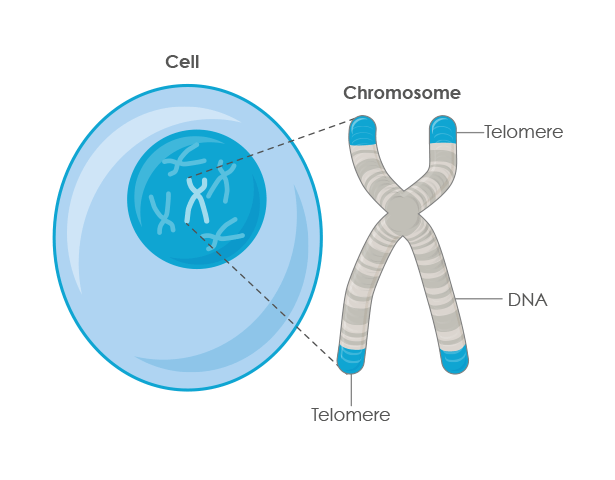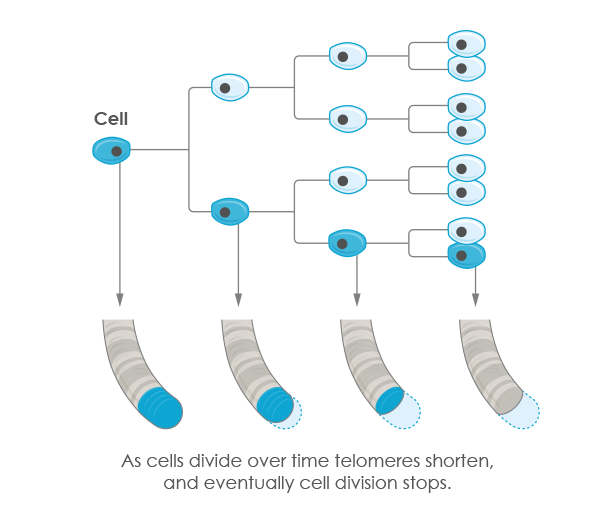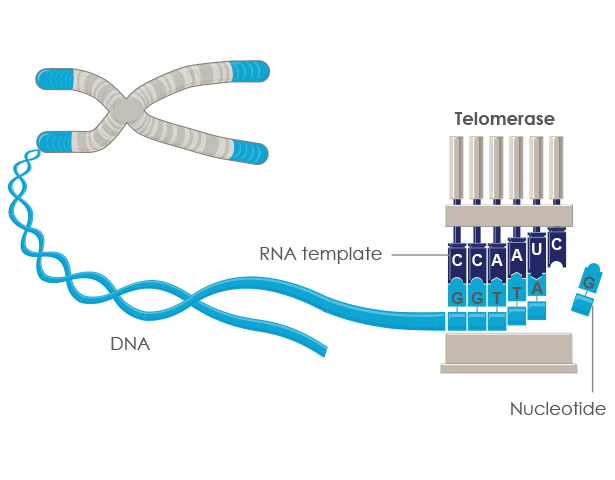I am writing after a long time! I got busy with my master’s project and the million things following it. Anyway, here I am again! Let’s talk about death (this is why I don’t have friends).
On a serious note, we are all at least a little intrigued by death isn’t it? So, today we are going to talk about why we die. We will mostly focus on natural death that occurs with aging and not spontaneous deaths like the ones in car accidents.
In this blog I will talk about the role of a very specific things called “Telomeres”. Scientists have been recently associating telomeres with aging and eventually with death. In fact there are some that are experimenting to see if we can lengthen the lifespan of living beings (specially humans because we are extremely selfish and don’t care about other species) by protecting the telomeres from degrading with age.
What are Telomeres you ask? omg google it! kidding, you wouldn’t be reading this blog if that was the case. Okay lets explain that with the help of a diagram:

Picture credits: https://theory.labster.com/dna-location/
So, we have trillions of cells in the body. Here is the diagram of ONE cell. This one cell has something known as a nucleus. This is where all the genetic information is stored. The genetic information is stored in the form of DNA which is all coiled up into that x shaped structure called chromosome.

Picture credits: https://defytime.com/telomeres-telomerase/
Biology is way easier when we break words down to understand what they mean. So, the word Telo-mere when broken down, translates to telos = end, meros =part. Telomere means end part. As you can also see from the diagram, telomeres are the parts protecting the chromosome ends. What are they protecting the chromosomes from?
They are protecting the chromosomes from degradation. The cells in our body are renewed constantly. New cells are formed through DNA replication which looks something like this:

Picture credits: https://learn-biology.com/hsbio/dna-replication-hs-tutorial/
All we need to know here is that DNA replicates and the cell doubles itself. Now, the important point here is, every time this process of replication happens, the telomere shortens in length. If this continues in that particular cell multiple times, this leads to chromosome degradation and eventually cell death. These replications keep happening as you age and eventually all your cells stop functioning or die. So you develop all these disorders related to aging and eventually take your last breath.

Picture credits: https://defytime.com/telomeres-telomerase/
Now you must be wondering if there is a way to lengthen these telomeres? Well, there is. An enzyme called “Telomerase” is responsible to lengthen the telomeres. As you can see in the diagram below, it keeps adding to the telomeres so they don’t get shortened. The interesting thing to note is that this enzyme is not active in normal cells, which means it doesn’t do its function of lengthening. However, cancer cells have shown high activity of this enzyme and if it can’t lengthen the telomeres in the cancer cells, it at least maintains the length of the telomeres which technically makes them immortal. How annoying is cancer!?

Picture credits:https://defytime.com/telomeres-telomerase/
Scientists have observed that the telomeres shorten with age and that the rate of telomere shortening can indicate the pace of aging. This is a normal process but things like obesity, lack of exercise, smoking etc can accelerate this process of shortening. This means it would accelerate the process of ageing and death. Moreover, multiple studies also show that shorter telomeres are a risk factor for developing cancer! You may not have thought about this but, work stress, type of profession, environment you live in (if toxic) can also shorten the length of telomeres.
Death is inevitable (Even Voldemort couldn’t manage to escape it) but you can certainly take some natural measures to if not stop, at least slow down the pace of aging. If you don’t want to die quicker, consuming plenty of fibre and anti-oxidants in your diet, exercising regularly and reducing your exposure to stressful environments and situations would be the way to go.
When you look at death this way, it doesn’t look that scary does it? Anyway, I hope you found this piece of information helpful in some way!
